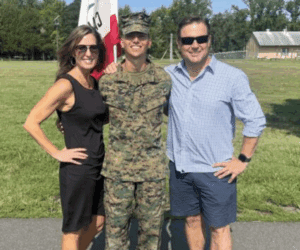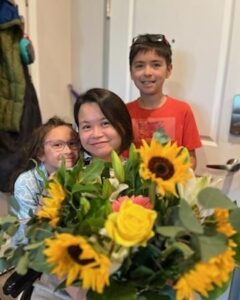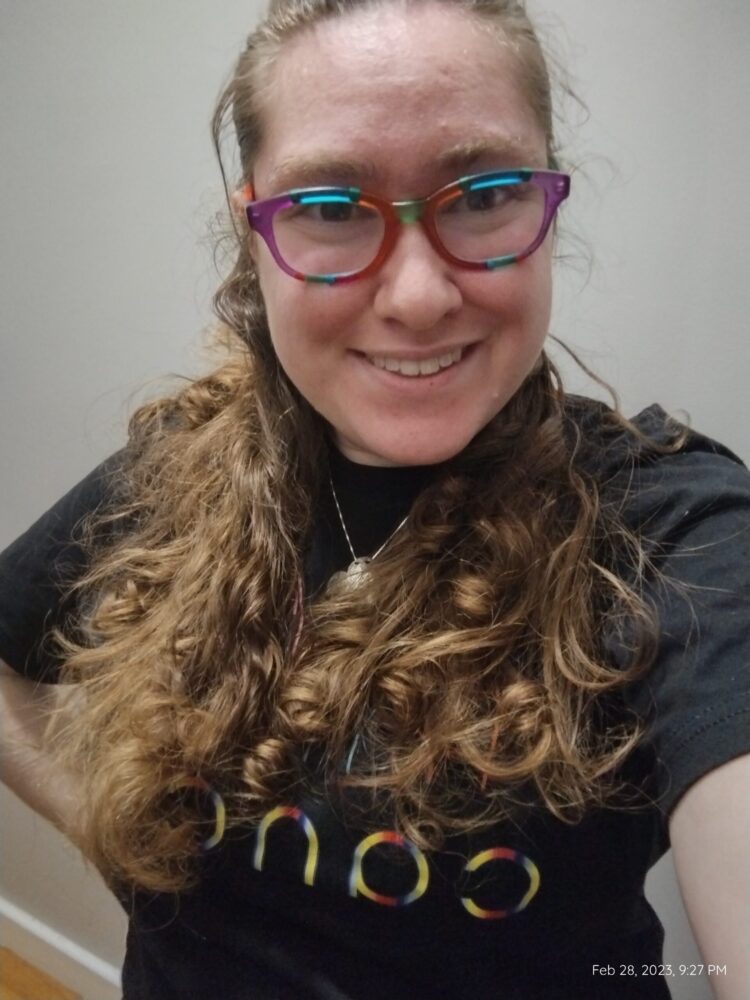 I am a 53 year old father of 3, and this is my sarcoma story…
I am a 53 year old father of 3, and this is my sarcoma story…
In the summer of 2020 it was the middle of the Covid pandemic, and my family and I managed to get away on our annual vacation to Lake Tahoe which had fewer restrictions at the time. A few days prior, I had an “odd” feeling on the back of my left testicle and noticed a small pea sized lump. Before we headed out to the beach one day, it hurt a little more (felt like a deep groin pull) and it was concerning enough that while sitting watching the water and kids paddleboard, I told my wife I was going to step away and make an appointment with a urologist for when we got back home. The call was quick and easy and I was able to get in the following week.
During that first visit the doctor said he could feel “something” and said it might be an infection, gave me antibiotics and some ibuprofen and also ordered an ultrasound. The ultrasound came back “normal” showing a cyst on the epididymis with no cause for alarm. “Cysts are common”, he told me and that was all for the time being. About 8 months later I noticed the lump becoming larger and went to a second urologist for his opinion. At that time he said “this is not how testicular cancer presents”, and was not concerned. It was dismissed as something called a hydrocele, another common testicular condition.
It was now 2022 and this lump had not gone away and only become slightly larger. I went back to the urologist in June and his opinion had not changed, but he did order another ultrasound at that time. When the results came back, there was nothing new. It did not show a tumor or unusual mass which I found quite odd. At the same time, there was no pain, just occasional discomfort. Still he said “not testicular cancer”, which was a relief. Nobody wants to hear the words “you have cancer”. It was then that he told me there was nothing other he could do, except remove the testicle. Given that, I decided to just keep “living with it”, and telling myself I didn’t need to lose the testicle and as a man, felt a bit embarrassed about the whole process of that happening.
Now it was early 2023 and the lump had become noticeably larger and more uncomfortable. I had been going through a lot personally with the death of my father in March and dealing with the responsibility in being there for the family. After that settled somewhat I made an appointment with my General Practitioner to have him look at this. Given what I had been told by the two urologists I was guessing it might be a hernia (it was now noticeable in my lower groin), but as soon as this doctor examined me, he said it was absolutely something concerning. He ordered an emergency ultrasound that day which came back this time as showing something “suspicious”. The doctor said it would be best to just have the testicle removed and that it probably wasn’t functioning right anyway. I happened to be leaving for vacation the next day and was able to book an appointment with the urologist upon my return.
At that appointment, I told the urologist to schedule the surgery and had him fully explain the procedure, etc. It was now mid-May and the surgery was booked for mid-June. All could do was ruminate on the “what if’s” the whole time. The surgery happened and took about an hour longer than the normal procedure. The doctor explained to my wife there was a sizeable mass, but it didn’t look like a cancer, at least that he had seen in the past. We waited almost 3 weeks when pathology came back and I heard the words “it was cancer”. I then met with him two days later and he started the process for a CT Scan and referrals to oncology. This all felt like an out of body experience…very surreal.
My official diagnosis…Paratesticular Lipsosarcoma. This is something so rare, less than 300 cases have been reported, and my urologist had only one other case in his 30 years of practice. “It’s so rare, we just don’t consider it” he said. It was a large Grade 2 tumor, dedifferentiated in nature. The good news was the margins in the spermatic cord were negative, and CT scans showed no spread. The disturbing news was because the tumor was also in the scrotum, there still could be positive margins…there was only so much tissue that could be removed at the time. I had excellent oncology doctors and sarcoma experts at UCSF in Northern California, who put together a treatment plan of 33 sessions of radiation, and felt very fortunate I did not have to do chemo. The radiation was tough, however, causing severe burns to a fairly sensitive area. Ultimately I recovered from that and got back to “normal” with education, and excellent doctors to assist me. The specialist gave me a very good prognosis, and I am now living with routine scans and follow ups every 6 months.
Words of Wisdom:
I think it’s important to advocate for yourself as much as you need. I didn’t know what sarcoma was until I was diagnosed, and I went along just accepting what my doctors told me, even though I felt like something was still “wrong”. I felt guilty afterwards for not taking action, but I learned a lesson that I want others to learn as well. We have excellent healthcare in our country, and if you don’t feel like you are getting clear answers, keep going until you do. Lumps and bumps can be many non worrisome things, but they can also be serious. Take your health seriously and get checked.
I’d also say to advocate for yourself in the treatment process. Do what you can and try not to let others dictate your schedule. If you can’t get in today, call tomorrow, and the next day. Part of my frustration with the urologists was that I would call and they would be booked 4 months out. I kept calling until they could squeeze me in when they could.
I would also say to look around you and stay blessed in all you have. We take that for granted way too much and think “this won’t happen to me”. Well, it can…or to a loved one. The saying “life is short” is not just a saying. It’s very true and can change in an instant. Practice gratitude.
The Role of Sarcoma Foundation of America:
The SFA was great in providing resources and information to make the process “less scary” for me. Awareness is the beginning and a cure for this disease can happen with continued research, trials, and funding. I have a loved one recently diagnosed with a different rare type of sarcoma, and I have directed them to the SFA for the similar support and information that I have found.




